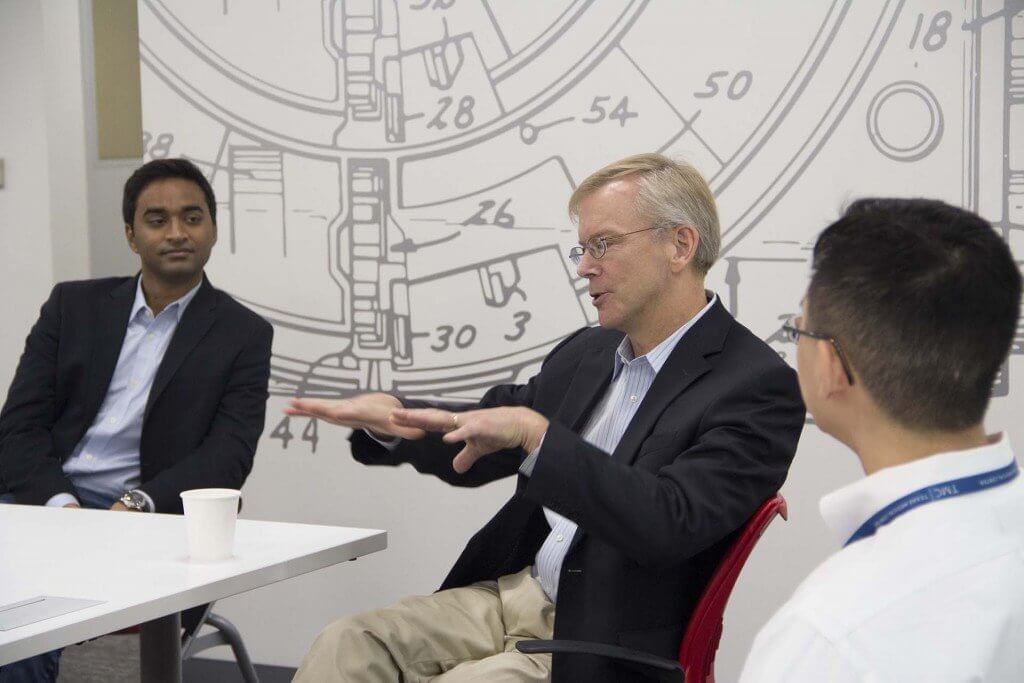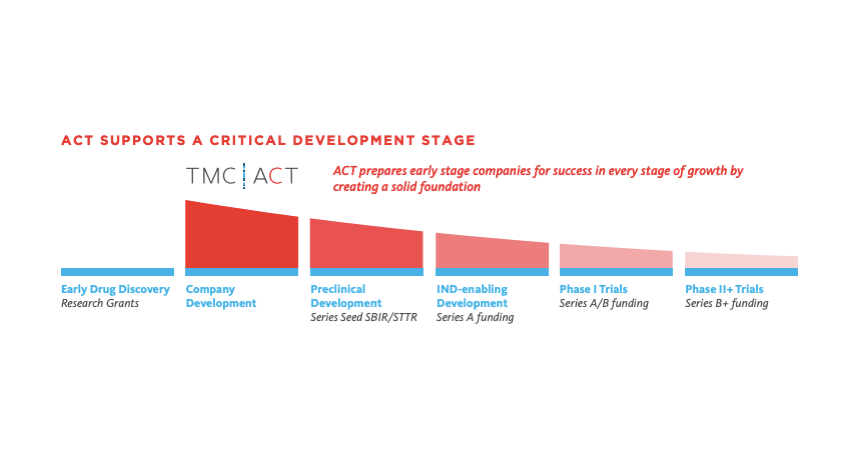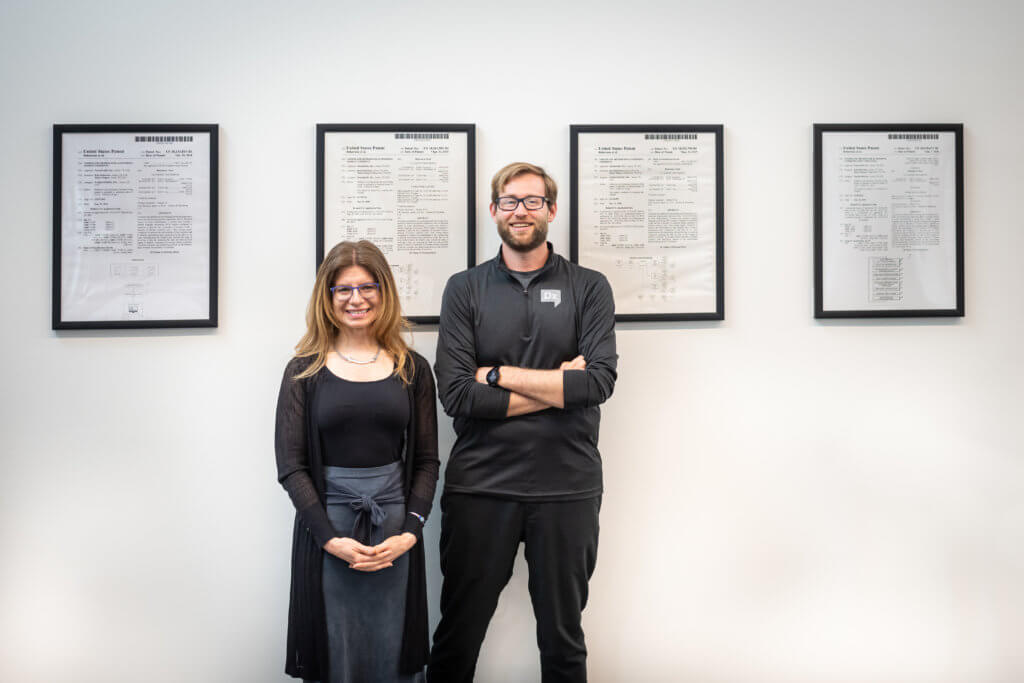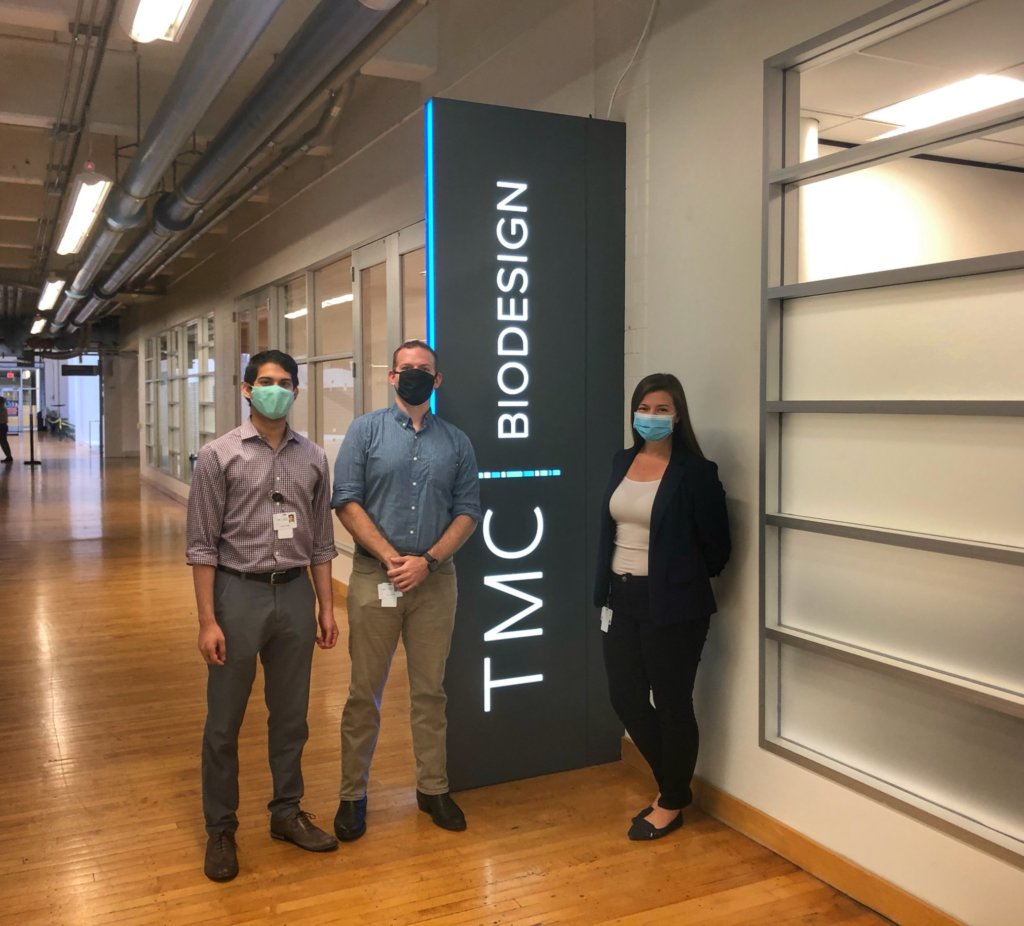TMC Biodesign Speaker Series: Mark Zdeblick

Navigating the various pitfalls of technology development and entrepreneurship—and redirecting your focus to those rare, shimmering opportunities for success—isn’t something that’s usually accomplished with ease. Fortunately for the fellows in the inaugural class of TMC Biodesign, the recently launched one-year innovation fellowship that’s brought together highly talented individuals from different disciplines to create digital health and medical device solutions, they have a unique chance to learn from the pros.
On Monday, Oct. 5, as part of the Biodesign Speaker Series, Mark Zdeblick, Ph.D., chief technology officer and co-founder of Proteus Digital Health, a digital health company that’s successfully raised over $300 million to date, came to TMCx to share stories, impart sage advice and provide fellows a platform to ask their own questions about startup success. Later that afternoon, he led a lecture at Rice University’s Oshman Engineering Design Kitchen.
“For most successful companies, the reality is that they do a few things really, really well and that carries the rest of the organization,” noted Zdeblick. “It’s extraordinarily hard to do everything really well or even summon the resources for it—you never have the full range of resources needed to fund every discipline within an organization, and you end up glossing over certain areas to be successful, overall.
“For a long time, we didn’t invest in the customer-facing side of our enterprise, because we weren’t ready for it yet,” he added. “Things like getting FDA approvals, delivering what we needed to our corporate partners, and just maintaining that basic level of activity was keeping us busy. Now that we’re more directly engaging hospitals we may spend a bit more time doing traditional marketing.”
In response to the difficulty of confirming whether or not a patient is taking the medication that their health care provider prescribes, Proteus has created the world’s first “smart” pill. With an ingestible sensor linked to a wearable patch that records when a pill is actually taken, they’re hoping to shatter the persistent problem of medication adherence.
“We started Proteus with that initial idea of adding electronics to existing medical devices to make them more efficient,” said Zdeblick. “I really liked the idea of knowing whether or not people are taking their medications or not.”
In the process of answering questions and recounting his experiences, Zdeblick’s distinctly optimistic and progressive mindset bubbled to the surface—one that stands in stark contrast to some of the more cautionary attitudes towards entrepreneurship.
“When I was starting out as an entrepreneur, I heard a lot of people talking about things that you shouldn’t do,” he said. “There’s a whole host of ways that a company can fail, and there’s relatively few ways to be successful, but it’s better to focus on looking at those examples of being successful. What does it mean to be successful in your particular industry?
“During my time in health care, I’ve learned that no matter how much you think doctors can be influenced by a great marketing program or the coolness factor of an entrepreneurs technology, what really makes decisions are outcomes,” continued Zdeblick. “That’s what the medical community cares about—what is the clinical benefit that can be achieved by using this technology?” In a field teeming with tenuous relationships and difficult questions to address, that seems refreshingly simple.






